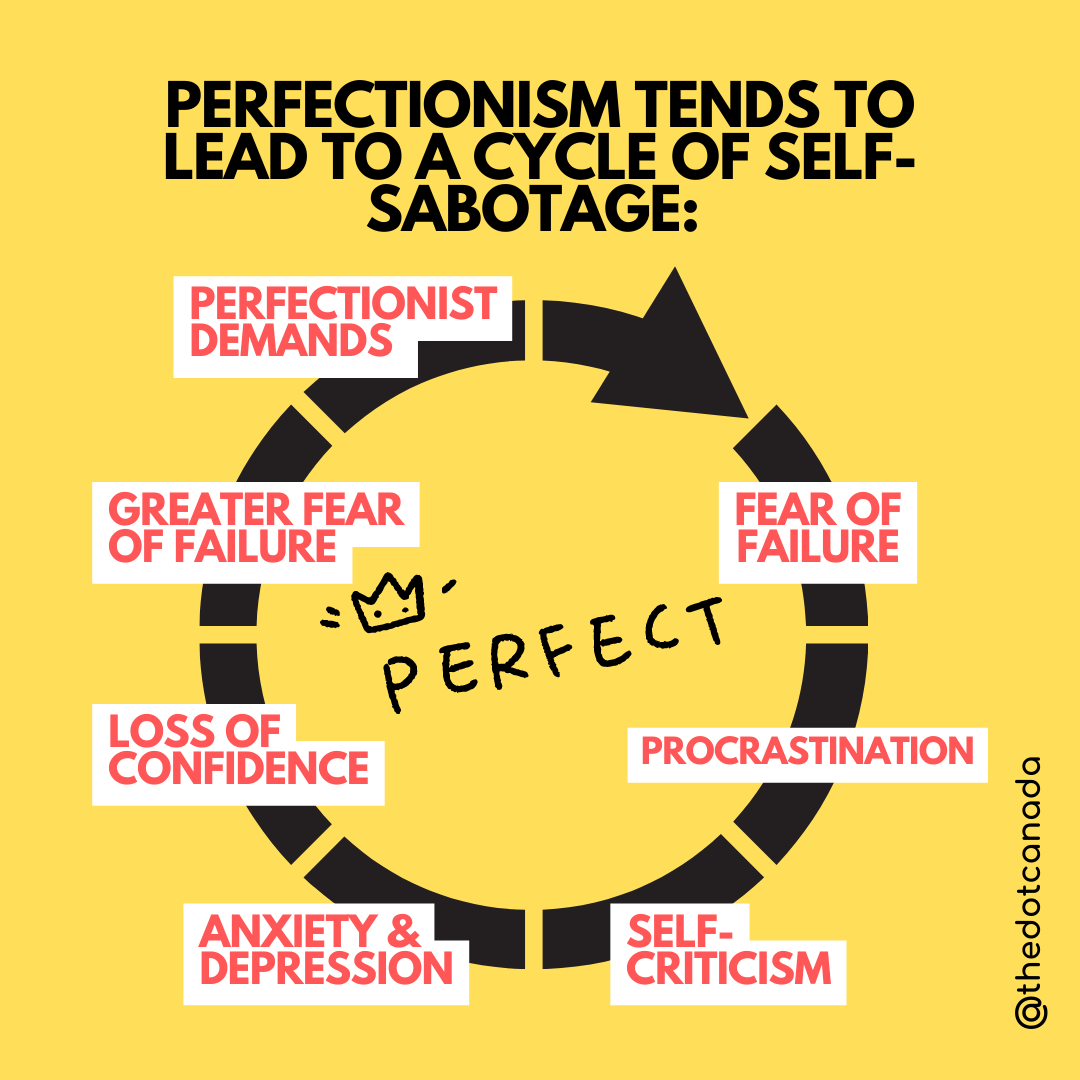In pursuit of perfection
The Pros and Cons of Perfectionism
Excellence, quality, high-standards, top-notch, exceptional... scores out of 10, marks out of a 100, ratings of 5 stars... champions, winners, being "number one"...
These are words and ways we often measure 'perfection' and define 'success'. And, in a world where high performance and success is valued, awarded, recognized and coveted; is it any wonder that perfectionism has risen over the last 30+ years?
Wondering the true pros and cons of perfectionism? Or, are you a practicing perfectionist and it’s starting to feel like it’s a bit of a burden? Read ahead and decide for yourself if the pursuit of perfection is worth it for you…
What is perfection?
According to the Merriam-Webster dictionary, the definition of perfection is:
“the quality or state of being perfect: being entirely free from fault or defect; exemplifying supreme excellence; and an unsurpassable degree of accuracy or performance.”
The problem with this definition ironically enough, is that it is not ‘perfect’. Perfection is a ‘subjective’ concept. Subjective meaning that something is defined as how you see it, rather than how it is. The same notion applies to being cool, boring, interesting and beautiful.
For example, your idea of the “perfect" vacation, may not be the same as someone else. Does that make your idea of the perfect vacation less ‘perfect’ or inferior all of a sudden? Of course not… perfection means different things to different people or situations.
What does perfectionism mean?
According to the American Psychological Association’s Dictionary of Psychology, perfectionism is “the tendency to demand of others or of oneself, an extremely high or even flawless level of performance, in excess of what is required by the situation.”
Research has shown that perfectionists strive to produce exceptional work, and have higher levels of motivation and conscientiousness than non-perfectionists.
However, research has also shown that perfectionists are more likely to set inflexible and excessively high standards, to evaluate their behaviour overly critically, and believe their self-worth is contingent on performing perfectly.
In fact, perfectionists have higher rates of stress, burnout and workaholism and perfectionism is strongly and consistently related to ‘detrimental’ work and non-work outcomes including higher levels of anxiety, depression, eating disorders, and other mental health problems.
There are 2 distinct but related dimensions of perfectionism:
Excellence-seeking perfectionism
Excellence-seeking perfectionists have the tendency to fixate on and demand excessively high standards, not only stringently evaluating their own performance but also holding high expectations for other people in their lives. Some perfectionists wear this label like a badge of honor.
Failure-avoiding perfectionism
Failure-avoiding perfectionists have the tendency to constantly worry that their performance is 'not quite good enough' and believe they will lose respect from others if they do not achieve perfection. This can lead to an obsessive concern with and aversion to failing to reach high standards.
Within perfectionism, self-criticism is the most harmful as it tends to lead to a cycle of self-sabotage and emotional consequences.
When you attach an irrational importance to being perfect, by setting unrealistic expectations for self and then punish yourself for not meeting those expectations you set yourself (and others who your impose your unrealistic standards on) up for failure.
There is a stark difference between being self-reflective and understanding how to admit to and learn from your own mistakes versus judging yourself so harshly that mistakes are intolerable. The emotional consequence of this kind of self-judgement is often shame which is damaging and can erode our ability to have a positive sense of self.
This self-doubt can lead perfectionists to believe that they are constantly being judged and that they must be perfect to get approval, validation or even love from others. Research has demonstrated that this thinking can lead to significant mental health consequences such as depression, general anxiety, socially-specific anxiety, lower life satisfaction, and feelings of low self-worth.
Is perfectionism a problem for you?
How many of these perfectionist traits can you relate to?
Are you afraid to try new things because you might fail or look foolish?
Do you constantly compare yourself to others?
Is your self-esteem based on your achievements and pleasing others?
Are you sensitive to criticism?
No matter how much you accomplish, do you feel like it’s never ‘good enough’?
Do you frequently leave projects or tasks unfinished?
Do you have impossibly high standards for yourself and others?
Do you see your mistakes as failures?
Are you frequently self-critical?
Are a self-described workaholic and find it hard to relax and practice self-care?
Do you like to feel in control and plan ahead?
Do you have trouble adapting to unexpected changes?
Do you tend to procrastinate?
Do you tend to do things yourself to make sure they get ‘done properly’?
The problem with being a perfectionist is that everything has to be perfect. The problem with being human is that nothing is perfect.
The reality is perfectionism is a very hard way to live.
When you are a perfectionist, you are constantly feeling pressure to perform or prove what you can do to yourself and others. You often feel lonely and misunderstood because when you feel the need to always be perfect, you find it difficult to share your struggles with others, since then you'd be seen as less than perfect! It’s a vicious cycle!
Recovery starts with recognizing how harmful constant perfectionism can be and to recognize that you can still hold high standards for yourself and achieve them without being perfect.
Other ways to combat perfectionism include letting go of the need to compare yourself to others. When we compare ourselves to others, we make judgments that we can rarely actually confirm, especially through socially media (e.g. she looks like she has the “perfect” life). We often compare how we feel inside to how we think others look on the outside (e.g. he is so happy because he is always smiling). This is a faulty comparison and frequently a damaging one.
Other strategies such as mindfulness (trying to stay in the moment), having gratitude for what we have and those that love us, examining our own harsh self-judgements and negative internal dialogue, can all be helpful antidotes to harmful perfectionism. Finally, having self-compassion is important as is truly learning how to see mistakes and challenges as valuable opportunities for growth.
We’re here if you need help
Therapy is a valuable tool that can help you to solve problems, set and achieve goals, or teach you new ways to keep your perfectionism in check. It can help you to build the life, career, and relationship that you want. Does everybody need it? No. But if you are curious about working with a therapist, that curiosity is worth pursuing.
We know it takes a great amount of courage to examine your life and to decide that there are things you would like to change. And, it takes more courage to do something about it. We can help. We offer free consultations for anyone in Ontario considering individual or couples counselling, online at The Dot. We will go through any of your questions and concerns to help you decide whether online counselling is the right choice for you.
SOURCES
Psychology Today 10 signs of a Problem with Perfectionism



